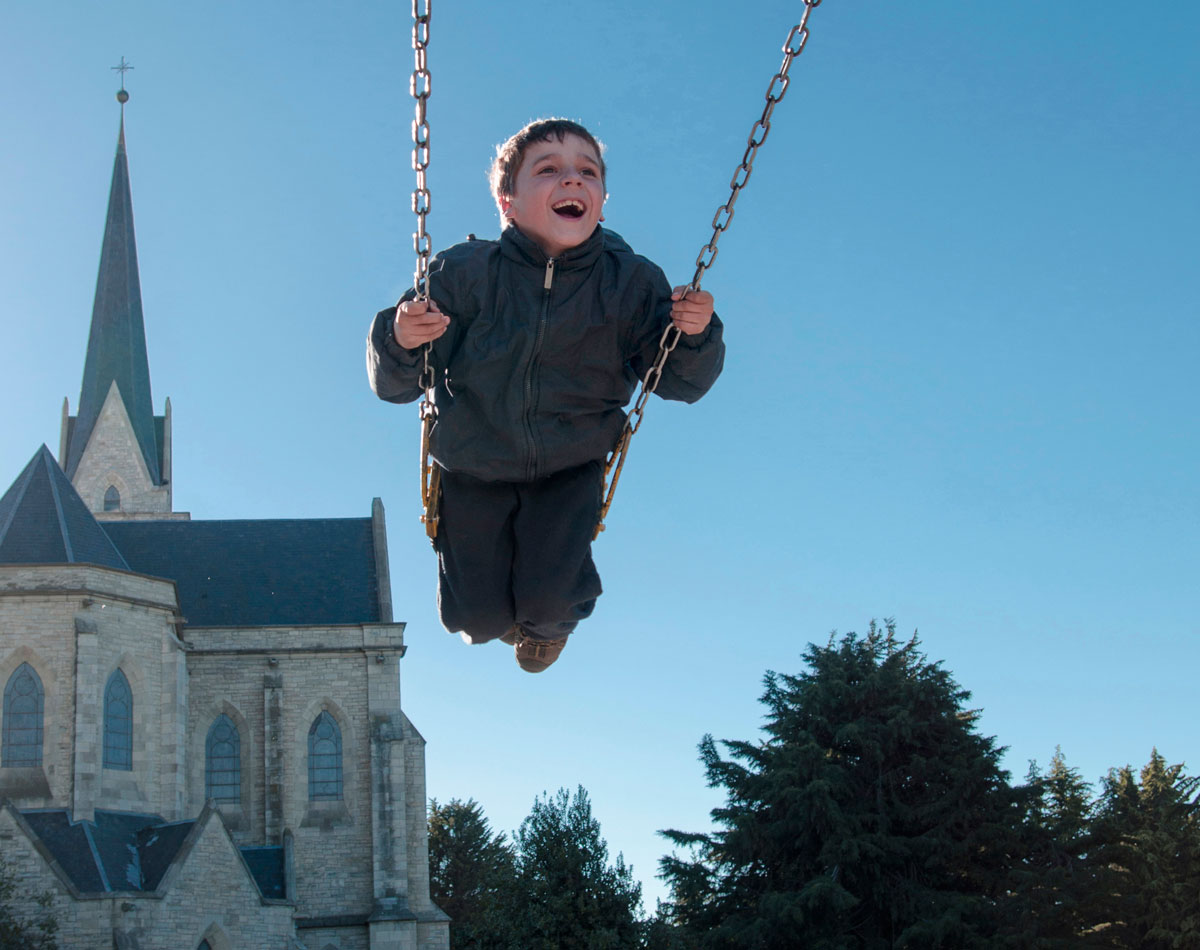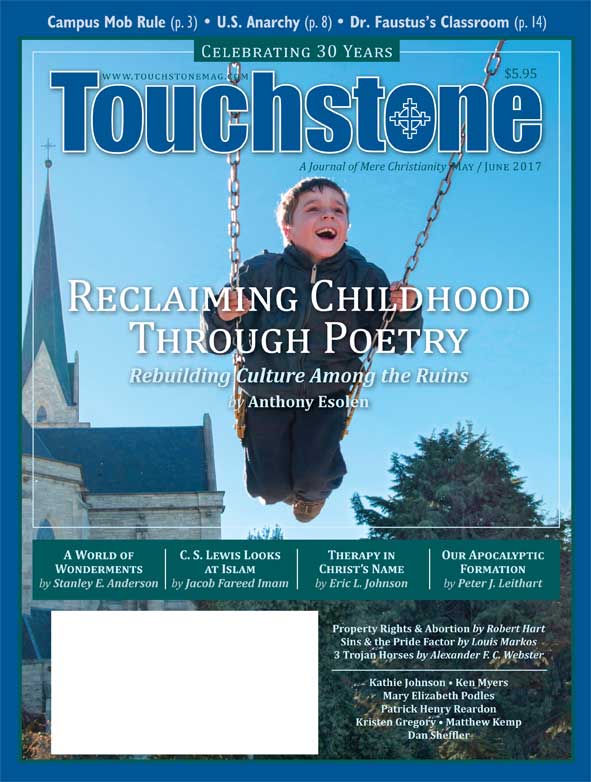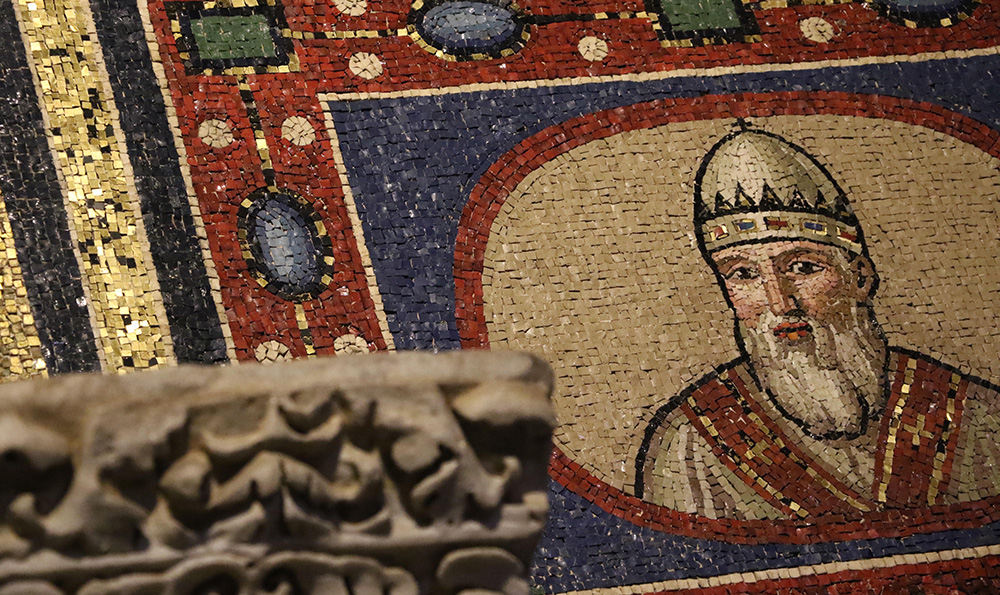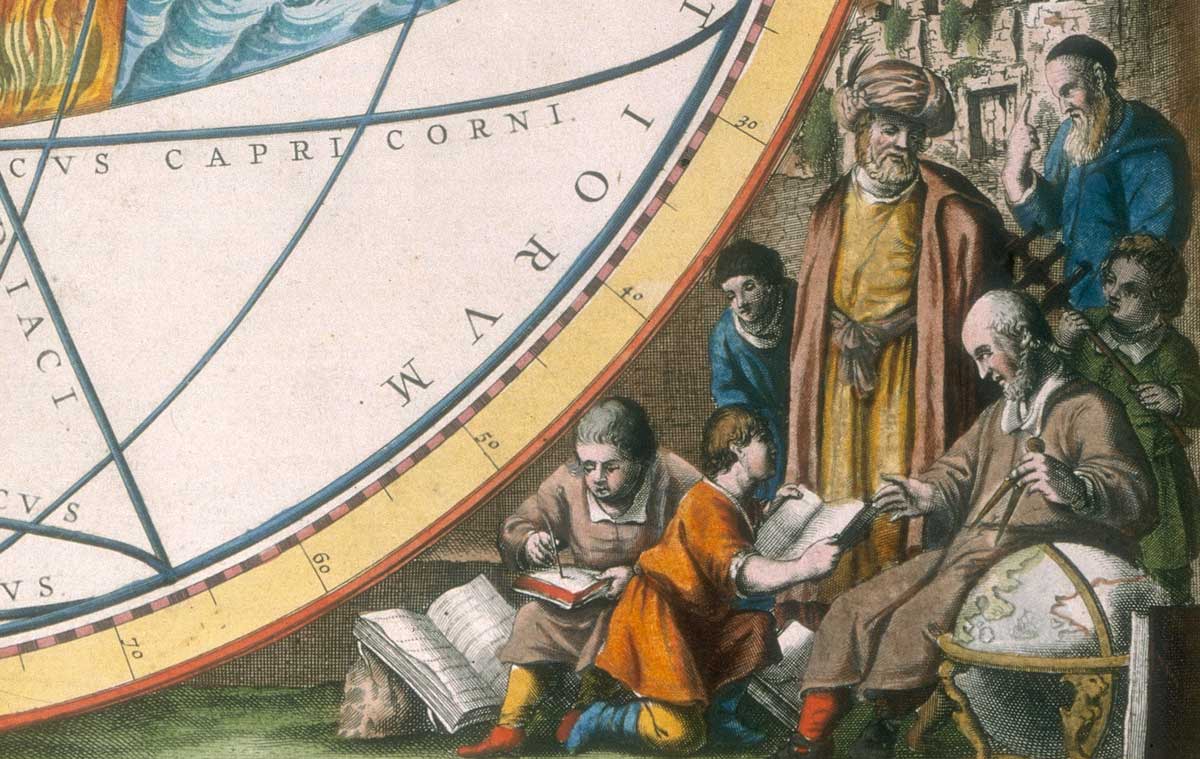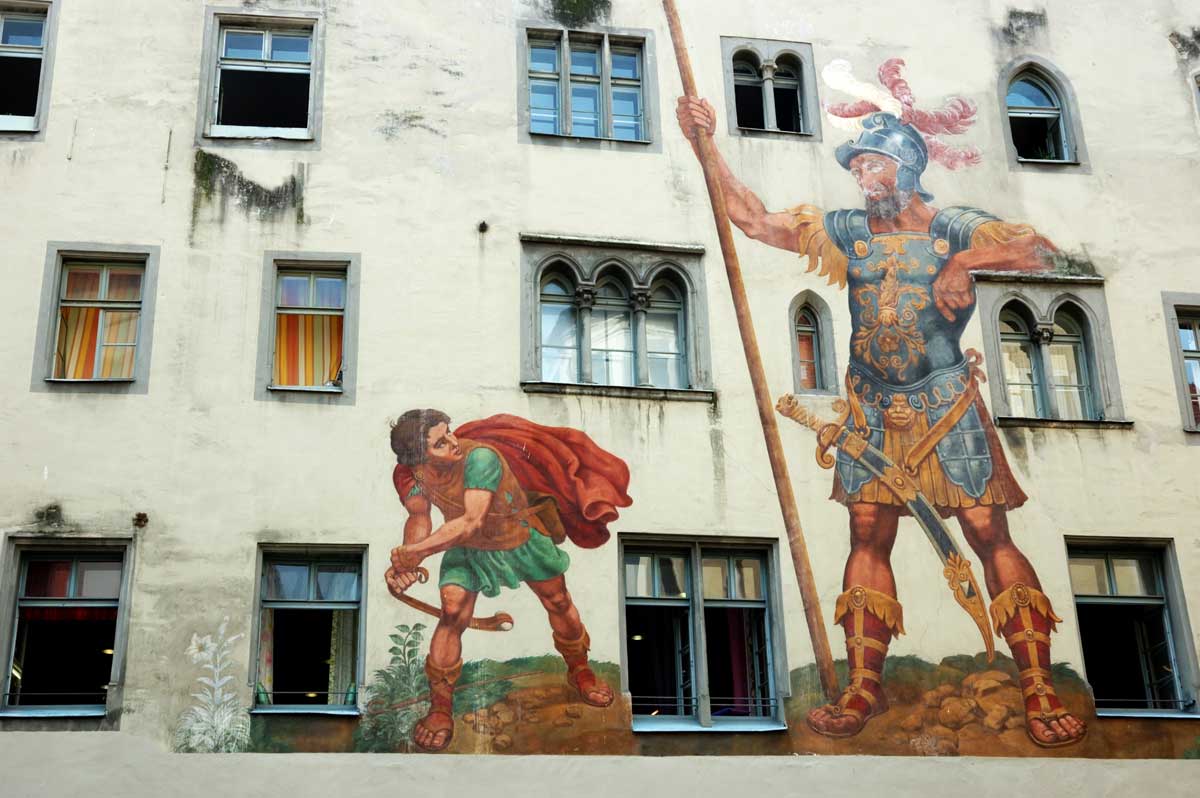Conference Talk
Reclaiming Childhood Through Poetry
Rebuilding Christian Culture Among the Ruins by Anthony Esolen
I'm going to talk about poetry today. It has occurred to me lately that in the United States, only Christians, and perhaps a few Orthodox Jews, can still understand what in the world a child is, what a wonder a child is, what a child is even for. Let me begin with the last stanza of a lyric poem by the great John Keats, the "Ode to Autumn":
Where are the songs of spring? Ay, Where are they?
Think not of them, thou hast thy music too,—While barred clouds bloom the soft-dying day,
And touch the stubble-plains with rosy hue;Then in a wailful choir the small gnats mourn
Among the river sallows, borne aloft
Or sinking as the light wind lives or dies;And full-grown lambs loud bleat from hilly bourn;
Hedge-crickets sing; and now with treble soft
The red-breast whistles from a garden-croft;
And gathering swallows twitter in the skies.
Why should a young person read a poem? Why should he read those lines from the "Ode to Autumn"? We can't answer that question without asking some more fundamental ones, simply these: What is a child? What is the child for?
The child shares life with all the other living creatures upon the earth; he eats and drinks, he moves about, he grows, he may eventually bring others of his kind into the world; all these things he shares in common with cattle and dogs and birds of the air and fish of the sea. Yet we perceive—even secular people perceive it dimly—that his life is more than food and drink and raiment; his cup runneth over. What is the life of his life?
Now, it would seem odd, even mad, if someone were to say, "I have a new and improved method of raising horses," without having first ascertained what horses are. It would hardly be sufficient if such a person, or a committee, or a bureaucracy flush with billions of dollars were to assure us that they could tell the difference between a horse and a camel, that they had once ridden a horse in a parade, that they could spell the word "horse," that they know how much horsemeat could sell for by the pound, and that they'd received bids from a glue factory for so much tonnage of equine bones. We would be even more wary and more ready to call the men from the home for the insane if they should assure us that their single, centrally directed method—whatever it may be—must be applied equally to ponies on the Shetland Islands, to wild mustangs on the American plains, and to draft horses on the steppes of Mongolia.
But what the mad men would do with or to the horse—the patient, dumb animal with the sad eyes—our ideologues of education today do with children all over America: they strap them onto the same treadmill, subject their teachers to the same overseers, and use the same conforming textbooks, computer files, data bases, and standardized tests. And they do so without troubling to ask the question I am asking: What is a child? What is the child for? What is the life of his life?
The child—and the fully realized human person to which his education should aim—is meant to be free. And freedom here I will define not as a negative; freedom is not simply a permission. Maybe we can understand better the heart of what freedom is if we turn to the German language and note that the word frei, or Freiheit, freedom, is etymologically related to Freude, joy, and Frieden, peace. These are all related: freedom is a spiritual actuality and not merely a negative. The child is meant to be free, which is to say, he is meant to behold what is good and beautiful and true, and to love it because it is so.
Anthony Esolen is Distinguished Professor of Humanities at Thales College and the author of over 30 books, including Real Music: A Guide to the Timeless Hymns of the Church (Tan, with a CD), Out of the Ashes: Rebuilding American Culture (Regnery), and The Hundredfold: Songs for the Lord (Ignatius). He has also translated Dante’s Divine Comedy (Random House) and, with his wife Debra, publishes the web magazine Word and Song (anthonyesolen.substack.com). He is a senior editor of Touchstone.
subscription options
Order
Print/Online Subscription

Get six issues (one year) of Touchstone PLUS full online access including pdf downloads for only $39.95. That's only $3.34 per month!
Order
Online Only
Subscription

Get a one-year full-access subscription to the Touchstone online archives for only $19.95. That's only $1.66 per month!
bulk subscriptions
Order Touchstone subscriptions in bulk and save $10 per sub! Each subscription includes 6 issues of Touchstone plus full online access to touchstonemag.com—including archives, videos, and pdf downloads of recent issues for only $29.95 each! Great for churches or study groups.
Transactions will be processed on a secure server.
more on poetry from the online archives
more from the online archives
calling all readers
Please Donate
"There are magazines worth reading but few worth saving . . . Touchstone is just such a magazine."
—Alice von Hildebrand
"Here we do not concede one square millimeter of territory to falsehood, folly, contemporary sentimentality, or fashion. We speak the truth, and let God be our judge. . . . Touchstone is the one committedly Christian conservative journal."
—Anthony Esolen, Touchstone senior editor





